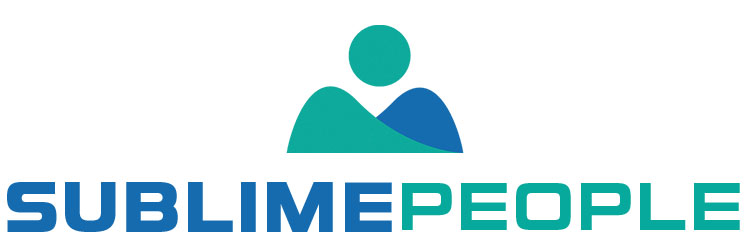The term “skills-based hiring” has become popular in the HR industry. Does this imply that skill-based hiring will dramatically change how companies recruit candidates? Are there any visible benefits for employers and employees? Find out in our blog article.
In this Article:
What is skills-based hiring?
The Skills-based hiring approach is a recruiting strategy where the hiring process emphasizes on a candidate’s skills rather than their resume or job experience. In other words, it is a recruitment approach that focuses on identifying and selecting candidates with the right skills, rather than traditional factors like work experience or education.
Some people claim that the traditional method favors candidates who come from top schools and have worked at prestigious companies. The skills-based hiring approach, however, aims to level the playing field so that all candidates are judged on their ability to do the job, regardless of their background.
Why use skills-based hiring?
The rationale behind skills-based hiring is that candidates’ job ability is more important than their resume or job experience. Companies assume that by using skills-based hiring practices, candidates’ skills are a better predictor of job performance than their resume.
There are several advantages of skills-based hiring:
- Skills-based hiring levels the playing field for all candidates.
- Skills-based hiring helps you identify hidden talent.
- Skills-based hiring is a more efficient way to hire.
- Skills-based hiring reduces unconscious bias.
Skills-based hiring vs. degree-based hiring
The skills-based hiring approach is often compared to degree-based hiring. Degree-based hiring is the traditional approach to recruiting, where the emphasis is placed on a candidate’s education and work experience.
The main difference between skills-based hiring and degree-based hiring is that skills-based hiring focuses on a candidate’s ability to do the job. In contrast, degree-based hiring focuses on a candidate’s resume.
The skill-based hiring system allows for greater access and a wider audience. Many talented people are without college degrees for many reasons. If grading is required, it could be an unnecessary restriction on candidates’ potential.
Why more companies are implementing skills-based hiring processes?
In the past, employers would focus on a candidate’s work experience and education when hiring. However, research has shown that these factors are not good predictors of job performance. On the other hand, skills are much better predictors of job performance.
As a result, companies are increasingly turning to skills-based hiring practices to improve their hiring success rate. Skills-based hiring allows companies to identify hidden talent and hire the best candidates for the job, regardless of their background.
How to adopt skills-based hiring?
If you’re interested in adopting skills-based hiring practices, there are a few things you need to keep in mind. Skills-based hiring is a bit different from traditional hiring, so it’s crucial that you understand the process and how to make it work for your company.
Here are a few tips on how to adopt skills-based hiring:
- Define the skills and competencies you’re looking for.
- Use assessment tools to identify candidates with the right skills.
- Train your hiring managers on how to use skills-based hiring practices.
- Ensure your job descriptions focus on skills and competencies, not experience or education.
- Implement a system to track and measure the success of your skills-based hiring practices.
By following these tips, you can successfully adopt skills-based hiring practices at your company. Skills-based hiring is an effective way to improve your hiring success rate and find hidden talent. It will surely take your company to the next level.
Why you should think twice about requiring a college degree?
The traditional hiring process often relies on a candidate’s educational background as a proxy for talent. But this method of hiring can be problematic for several reasons.
A longer time to hire
Currently, this skill gap leads to long waits for hires, because the traditional hiring process takes longer and more time to identify qualified individuals with the skill sets. In most jobs, it’s more difficult for a candidate to have a high school or college degree to be found. You need to take skill-based hiring into account to make better hiring decisions faster. It increases your chances of retaining talented, varied staff who drives your performance.
A less diverse workforce
The cost of pursuing college in many parts of the world is increasing, and the requirement might exclude candidates with less income than the average candidates. If you are only considering people with particular skills, you miss the opportunities for hiring workers from different backgrounds and benefits from a unique and varied perspective.
A larger skills gap
When you only consider college graduates for your job, it could artificially increase your talent gaps. Some skilled individuals may not hold college degrees yet may have developed skills in other directions.
A narrower talent pool
When your requirements are too specific, you could lose great applicants who may not fit your needs or have good experience and are prepared to take the job as they are.
The best skill-based hiring practices
Skill-based hiring practices are essential for organizations to find the right candidates who have the necessary skills and qualifications to perform the job. Here are some of the best skill-based hiring practices:
Identify the skills needed: Before starting the hiring process, it’s crucial to identify the specific skills required for the job. This includes technical skills, soft skills, and any other skills that are necessary for the job.
Use job-related assessments: Using job-related assessments can help determine the skills of a candidate. These assessments can include technical assessments, problem-solving exercises, and situational judgment tests.
Conduct structured interviews: Conducting structured interviews can help ensure that all candidates are evaluated in a consistent manner. In a structured interview, each candidate is asked the same set of questions in the same order, which can help eliminate any biases in the hiring process.
Look for evidence of skills: It’s important to look for evidence of a candidate’s skills, such as work experience, projects they have worked on, and any relevant certifications they may have.
Consider skills development potential: In some cases, it may be beneficial to hire a candidate with the potential to develop the necessary skills. Look for candidates who have a growth mindset and a willingness to learn.
Use technology: Technology can be used to streamline the hiring process and help identify candidates with the necessary skills. This can include applicant tracking systems, AI-powered resume screening, and video interviewing platforms.
Benefits of skills-based hiring
Learning the best practices for hiring helps businesses achieve their many objectives. Recruiters using skills-based hiring will help reduce recruiting costs by providing the best candidate the first time – reducing the cost of poor hiring. The new system will help firms close skill gaps and increase productivity by hiring employees that can perform effectively in their industry. How can skill-based recruitment help companies grow?
Increased Diversity and Inclusion
Skills-based hiring allows for a more diverse and inclusive workforce. When you focus on an individual’s skills, you open up the pool of candidates to individuals from all backgrounds. This approach can lead to a more diverse team, which can ultimately lead to better problem-solving and innovation.
Improved Employee Performance
When you hire based on skills, you are ensuring that your employees have the necessary knowledge and abilities to perform their job successfully. This can lead to improved employee performance and higher productivity levels. Additionally, employees who are hired based on their skills are more likely to feel confident in their role, which can lead to a higher level of job satisfaction.
Cost-Effective Hiring
Skills-based hiring can be a cost-effective approach to hiring. By focusing on an individual’s skills, you are able to find the right candidate for the job without the need for extensive and expensive credential checks. This approach can save your organization both time and money in the hiring process.
Reduced Turnover Rates
When you hire based on skills, you are more likely to find a candidate who is a good fit for the role. This can lead to reduced turnover rates, which can save your organization time and money in the long run. Additionally, employees who are hired based on their skills are more likely to stay with the company longer, as they feel confident and successful in their role.
Increased Innovation and Creativity
Skills-based hiring can lead to increased innovation and creativity within your organization. When you hire based on skills, you are more likely to find employees who have a unique set of abilities and experiences. This can lead to new ideas and perspectives that can ultimately lead to innovation and growth within your organization.
A word from SublimePeople
In conclusion, skills-based hiring can be a game-changer for your organization. By focusing on an individual’s skills, you can increase diversity and inclusion, improve employee performance, reduce costs, reduce turnover rates, and increase innovation and creativity.
SublimePeople can help you find the right people for your organization. With the help of our unique recruitment process, we can identify, select, and send through the talent you are really looking for. Contact us today for further information.






